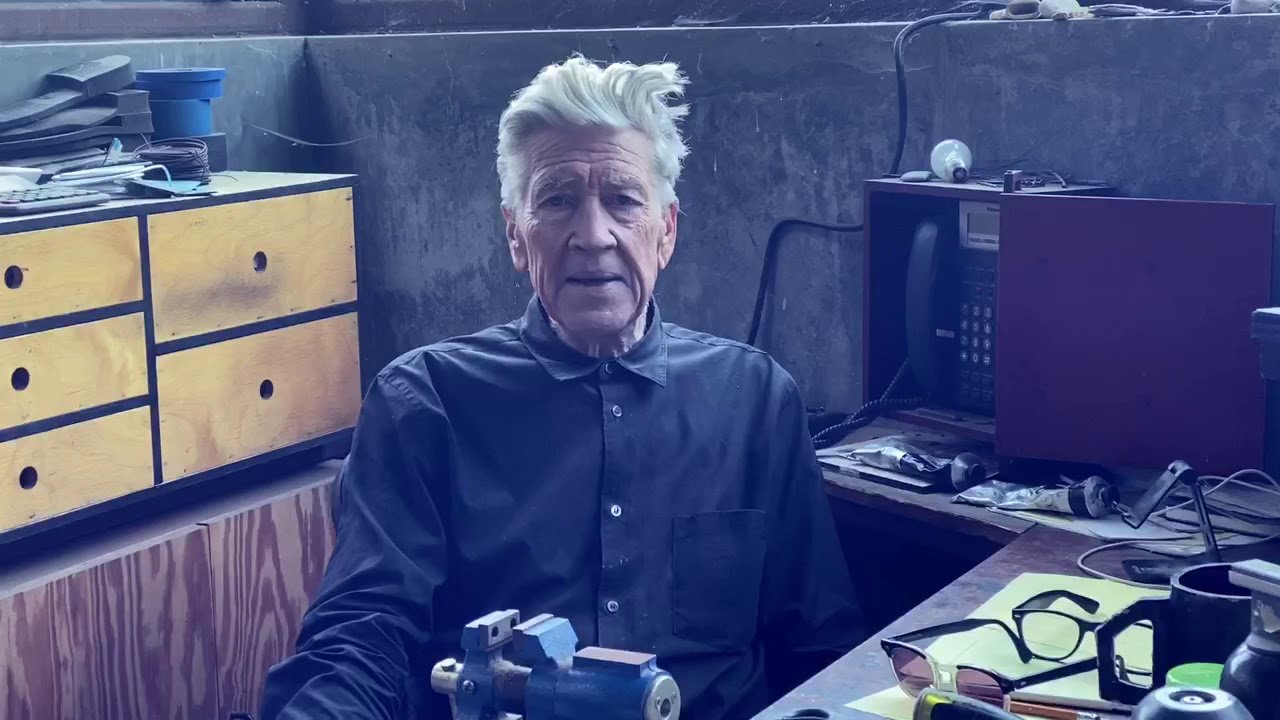On The Passing of David Lynch
Ah man. I always feel a little foolish mourning the death of a person I've never met but there's a handful of artists who just feel so immortal that it's hard to process a world without them. David Lynch has been a part of my conscious for the majority of my life – his movies, his artwork, his words, his personality – and I'm not too sure how to break the news to myself. For me, not knowing the actual man himself, nothing has really changed. But reality has objectively shifted and I feel like I need to adjust something that's not actually tangible. It feels a bit like being forced to self-amputate a phantom limb. What exactly am I so upset about?
When something is called 'Lynchian' that usually means it’s bizarre, surreal, uncanny, or deceptively disturbing. But when I try to distill what I liked so much about the idea of David Lynch existing on the same planet as me, I keep coming back to one thing: his brand of joy. I’ve always loved Lynch’s sense of humor, the likes of which radiated through everything he did including his most upsetting scenes. He leaned into those unsettling contradictions, those giant question marks in the sky — the more ridiculous something was, the more terrifying it was. This pursuit of joy is what makes Dennis Hopper's Frank Booth in Blue Velvet so disturbing, a man who dominates and punishes others in pursuit of a high he can not longer achieve. Drinking beer, listening to music, hanging out with friends, huffing gas, having sex; he's doing everything 'right' in all of the wrong ways and not understanding why he can’t receive the results he demands. The terror of his character is this inability to feel actual pleasure while still being haunted by the memory of knowing what it could be.
Compare him to the other side of the coin with Kyle MacLachlan's Agent Cooper in Twin Peaks. An FBI agent who, having suffered loss and regret, now rests his entire life and career on the pursuit of love. He'll happily stop everything simply to savor a moment in time; a perfect cup of coffee, a beautiful piece of cherry pie, a gorgeous tree, a satisfyingly stacked donut. "Every day, once a day, give yourself a present. Don't plan it. Don't wait for it. Just let it happen." he tells officer Harry Truman with that Cheshire Cat smile of his. His belief in emotional truths are so strong that it borders on the quixotic – a mix of manic, mystical and mundane, trying to solve a murder by throwing rocks at bottles because of a dream he had in 1986. As the show progresses Cooper becomes a spiritual warrior of sorts, fighting not only for Laura Palmer's sake but for the dream of innocence that the townsfolk previously held. Which is what makes it all the more disturbing when Bob splits his body and becomes the grotesque doppelganger Mr. C in Twin Peaks: The Return. And all the more heart wrenching when, in the last episode of the series, Cooper is still trying desperately to fix what we have now realized is irreparable. Death as neither good nor evil but simply a fact of life – futile but never meaningless.
David Lynch had a way of taking our deepest impulses and putting them on an even playing field with polite society, showing both the beauty of destructiveness and the desperate, grotesque side of love. Call it surreal or abstract, but it's really just this radical sense of truth; a tearing down of walls in the compartments of our minds, drawing connections between how we feel and how we act, laying it all bare for us to grasp without judgement. There's an inherent discomfort in viewing such a direct reflection, sometimes it’s as painful as catching a ray of sunlight bouncing off a mirror, which is exactly where humor lies. It’s that unexpected, sincere appreciation of a truthful feeling that made David Lynch's weather reports so charming, what made his comicstrip The Angriest Dog In The World so relentlessly amusing in spite of its static artwork, what made his frank interviews so engaging, and even his most abstract films so compelling. That you don't need to understand every moment of Mulholland Drive or Inland Empire to feel disturbed or intrigued or even angry while watching it is exactly what made him a cinematic genius.
Wild At Heart has always been my personal favorite of his. It's his most romantic film, even though its sense of romance is warped by youthful naivety, obsessive codependency and an entire cast of characters who are severely in need of therapy. But there's just something about the way it distills that feeling of longing and desperation that comes with the pursuit of pleasure, love and stability. It’s a profoundly earnest story stuck in a hollow world of contradictions, a cinematic equivalent of everything Elvis' music stood for. Nicolas Cage's Sailor is an almost perfect embodiment of Lynch’s brand of radical honesty; a guy willing to kill for love but unable to truly unlock his heart for the one he so desperately loves, played by an actor so sincere you sometimes can't help but laugh. Laura Dern's Lula is equally electric as a girl so in love with promises of life she can barely bring herself to comprehend all of the horrific things that have happened to her in pursuit of it. Two fucked up people with big feelings, saved in the end by a filmmaker so similarly desperate for what could have been he gets Glinda the Good Witch to somehow magically make it all work out. Yet again, there’s that true belief in happiness, with the knowing laugh of futility.
Thank you David.




